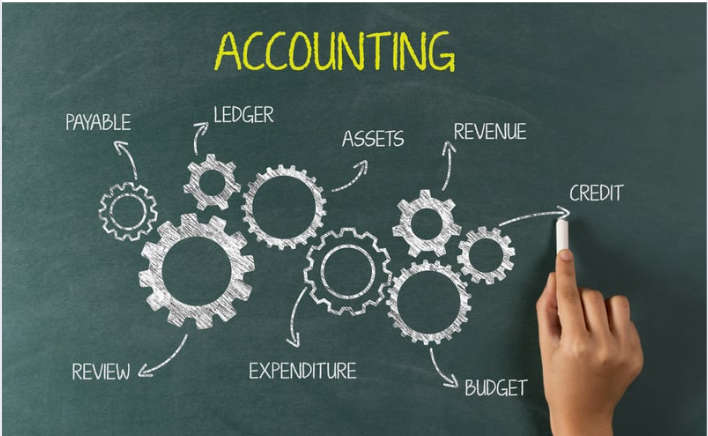The CA Foundation exam, conducted by the Institute of Chartered Accountants of India (ICAI), is the first step toward becoming a Chartered Accountant. With its comprehensive curriculum, the CA Foundation syllabus equips students with essential knowledge in accounting, law, mathematics, and economics. If you're preparing for the 2025 exam, understanding the syllabus in detail is key to crafting an effective study plan. In this blog, we’ll provide a complete breakdown of the CA Foundation syllabus for 2025, covering all four papers, their objectives, and the topics you need to master.
Overview of the CA Foundation Syllabus
The CA Foundation syllabus comprises four papers, each worth 100 marks, designed to build a strong foundation in accounting, legal principles, quantitative skills, and business economics. Here’s a quick look at the papers:
Paper 1 : Accounting
Paper 2 : Business Law
Paper 3 : Quantitative Aptitude
Paper 4: Business Economics
Let’s dive into each paper to explore the objectives and content in detail.
Paper 1: Accounting (100 Marks)
Objective: The goal of this paper is to develop a solid understanding of accounting basics and their application in preparing financial statements and solving simple problems.
Contents
The CA Foundation syllabus for Accounting covers the following topics:
1. Theoretical Framework: Meaning, scope, concepts, principles, conventions, capital vs. revenue items, accounting policies, and standards.
2. Accounting Process: Double-entry bookkeeping, journals, ledgers, trial balance, and error rectification.
3. Bank Reconciliation Statement: Preparation and reasons for discrepancies.
4. Inventories: Valuation techniques, cost, and net realizable value.
5. Depreciation and Amortisation: Methods and accounting treatment for tangible and intangible assets.
6. Bills of Exchange and Promissory Notes: Concepts and accounting for accommodation bills.
7. Final Accounts of Sole Proprietors: Trading, profit and loss accounts, and balance sheets.
8. Financial Statements of Not-for-Profit Organizations: Receipt and payment accounts, income and expenditure accounts.
9. Accounts from Incomplete Records: Single-entry system basics.
10. Partnership and LLP Accounts: Final accounts, partner changes, and dissolution.
11. Company Accounts: Shares, debentures, forfeiture, re-issue, redemption, bonus, and rights issues.
This paper lays the groundwork for financial reporting and is a core component of the CA Foundation syllabus.
Paper 2: Business Laws (100 Marks)
Objective: This paper aims to build general legal knowledge of contracts, sales, and business structures while enhancing the ability to address practical issues.
Contents
The CA Foundation syllabus for Business Laws includes:
1. Indian Regulatory Framework: Overview of bodies like SEBI, RBI, and the Ministry of Corporate Affairs.
2. The Indian Contract Act, 1872: Elements of contracts, performance, breach, and special contracts like indemnity and agency.
3. The Sale of Goods Act, 1930: Conditions, warranties, and rights of an unpaid seller.
4. The Indian Partnership Act, 1932: Partnership rights, duties, and dissolution.
5. The Limited Liability Partnership Act, 2008: Features, incorporation, and differences from other entities.
6. The Companies Act, 2013: Company types, share capital, incorporation, and doctrines like indoor management.
7. The Negotiable Instruments Act, 1881: Types, negotiation, and compensation rules.
Note: The syllabus adapts to new legislation as notified by ICAI, ensuring relevance to current laws.
Paper 3: Quantitative Aptitude (100 Marks)
Objective: This paper focuses on developing mathematical and statistical skills for business, finance, and economics, alongside logical reasoning abilities.
Contents
The CA Foundation syllabus divides Quantitative Aptitude into three parts:
Part A: Business Mathematics (40 Marks)
1. Ratio, proportion, indices, logarithms, and time/work problems.
2. Equations (linear, quadratic, cubic) and their business applications.
3. Linear inequalities and solution spaces.
4. Mathematics of Finance: Interest (simple/compound), annuities, EMI, and returns.
5. Permutations and combinations.
6. Sequence, series, and arithmetic/geometric progressions.
7. Sets, relations, functions, limits, and continuity.
8. Differential and integral calculus applications (non-trigonometric).
Part B: Logical Reasoning (20 Marks)
9. Number series, coding/decoding, and odd man out.
10. Direction tests.
11. Seating arrangements.
12. Blood relations.
Part C: Statistics (40 Marks)
13. Statistical representation: Diagrams, frequency distributions, histograms, and pie charts.
14. Measures of central tendency (mean, median, mode) and dispersion (standard deviation, quartiles).
15. Probability: Events, Bayes’ theorem, and total probability.
16. Theoretical distributions: Binomial, Poisson, and Normal.
17. Correlation and regression analysis.
18. Index numbers: Construction and uses (e.g., BSE SENSEX).
This paper sharpens analytical skills, making it a critical part of the CA Foundation syllabus.
Paper 4: Business Economics (100 Marks)
Objective: The aim is to understand economic concepts and theories and apply them to real-world business issues.
Contents
The CA Foundation syllabus for Business Economics includes:
1. Introduction to Business Economics: Scope and basic economic problems.
2. Theory of Demand and Supply: Laws, elasticities, and consumer behaviour (indifference curves).
3. Theory of Production and Cost: Production laws, cost concepts, and producer’s equilibrium.
4. Price Determination in Different Markets: Perfect competition, monopoly, and oligopoly (via game theory).
5. Determination of National Income: Macro aggregates and Keynesian models.
6. Business Cycles: Phases, features, and causes.
7. Public Finance: Fiscal functions, budget processes, and market failure.
8. Money Market: Money demand/supply, monetary policy, and cryptocurrency.
9. International Trade: Trade theories, policies, exchange rates, and FDI.
10. Indian Economy: Historical overview (pre-1950, 1950-1991, post-1991).
This paper connects theoretical economics with practical business scenarios.
Conclusion
The CA Foundation syllabus for 2025 is a well-rounded curriculum that tests your accounting, legal, analytical, and economic skills. By breaking it down into manageable sections and aligning your study plan with the topics outlined above, you can approach the exam with confidence. Whether you're tackling double-entry bookkeeping or analysing market structures, a thorough understanding of the syllabus is your stepping stone to success in the CA journey.
Ready to start? Dive into the CA Foundation syllabus today and take the first step toward becoming a Chartered Accountant!


